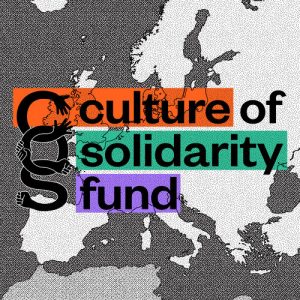This post is also available in: Español (Spanish) English
 Hem rebut la Beca del Culture Solidarity Fund (Fons Cultura de Solidaritat) de l’European Cultural Foundation, que dóna suport a iniciatives culturals locals que reforcen la solidaritat i fan front a les conseqüències de la pandèmia, construint aliances a Europa més enllà de les fronteres i de les diferències.
Hem rebut la Beca del Culture Solidarity Fund (Fons Cultura de Solidaritat) de l’European Cultural Foundation, que dóna suport a iniciatives culturals locals que reforcen la solidaritat i fan front a les conseqüències de la pandèmia, construint aliances a Europa més enllà de les fronteres i de les diferències.
Amb aquesta nova ajuda, Teixidora segueix avançant per ser un espai multilingüe, interoperable i transparent per documentar esdeveniments i reunions de treball (presencials o en línia) i cartografiar persones, projectes, organitzacions i temes implicats.
El wiki semàntic permetrà explorar connexions entre idees i coneixement, co-crear continguts educatius, científics, jurídics, periodístics o artístics, fomentant el debat i la cerca del consens, les connexions entre projectes i persones, aprofundint en interessos, percepcions i perspectives diversos.
En paraules del col·lectiu Wu Ming “Les Històries pertanyen a tothom. Pertanyen a la comunitat … [···] Urgeixen les narracions obertes i corals ”(Aquesta revolució no té rostre (Questa rivoluzione non ha volto, 2002).
En la situació actual és vital per a les comunitats, grups de base (ciutadans, artistes, investigadors, activistes,…) compartir experiències, pràctiques, pensaments i que el coneixement no quedi tancat en els idiomes, en cambres culturals i/o comunicatives de ressò, creades per individualitzar i centralitzar les tecnologies de seguiment de dades i algorismes de discurs i control (com Facebook, Twitter, Google o Microsoft) amenaçant la sobirania tecnològica.
Per això volem fer una documentació coral (col·lectiva) i oberta, promoure metodologies en reunions tant digitals com presencials. Aquesta documentació es pot recollir a la wiki semàntica de Teixidora o de manera distribuïda allotjada en altres plataformes per poder entrellaçar continguts creats en idiomes no dominants.
A Teixidora, des del 2016, s’han documentat més de 400 sessions d’esdeveniments, així s’ha generat una cartografia de temes, projectes, organitzacions, persones i publicacions que s’hi mencionen; produint una estigmergia documental que permet rastrejar de manera transparent les relacions entre discursos, debats i propostes. Combina diverses tecnologies (documents etherpad col·laboratius, wiki semàntica, bots automàtics d’extracció de text estructurat) amb metodologies que han estat definides, posades en pràctica i reelaborades, en esdeveniments locals i internacionals.
Fins ara la interfície és només en català i , així com també ho són els continguts dels camps descriptius i de metadades. Els apunts dels esdeveniments s’han recollit principalment en català, però també en altres idiomes com el castellà (per exemple a ComunESS), l’anglès (per exemple a Sharing Cities), i al francès (al Commons Camp Marsella, juntament amb el castellà, l’anglès i l’italià).
L’objectiu del projecte que engeguem ara és trobar millors solucions tècniques (wiki semàntica,plantilles, bots, aprenentatge automàtic, …) per a intercanvis multilingües i continuar provant-los en esdeveniments i reunions que tinguin lloc en els propers mesos. Tenim el propòsit d’explorar com els usuaris podran navegar, veure i afegir contingut en un idioma escollit i connectar-lo amb contingut en altres idiomes.
